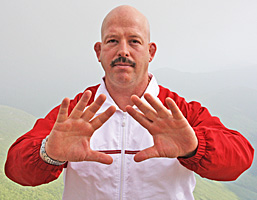“The harder you work, the more stress and strain you put into a task, the harder your work becomes.”
– el Furecat
Hold the phone: If the quote mentioned above is true, then why do so many people tell you to work hard? Is hard work really the secret of success?
Well, it appears, on the surface, that hard work is the answer. If you’re not getting the results you want, it makes sense that if you put more time and energy into what you are doing, you’ll get better results. Straight down the line this is true – except for when it isn’t, which is quite often.
The secret of “hard work” is getting the feeling that you are aren’t working hard, even if you are.
For example, let’s say that you are terrible at a specific physical activity, such as shooting free throws. As outlined in Psycho-Cybernetics, Updated and Expanded, you can improve your success percentage by physically practicing free throws every day. In fact, in a 20-day study, those who physically practiced each day improved their percentage of made goals by 24%.
But…. and here’s the clincher, the group that didn’t physically practice, the group that ONLY practiced in their imagination, improved 23%.
Additionally, there was one group in the test that did not practice physically or mentally, and they showed zero improvement.
To summarize, the group that didn’t “work” or practice in anyway, got nowhere. And the two groups that did something each day, improved.
We can assume that the group who physically practiced “worked hard” at improving their free throws, and this helped them improve.
But what about the group who only visualized? Did they “work hard” at picturing the result they wanted, or did they merely take it easy and relax into the feel of the game?
Moreover, why wasn’t there a follow-up test with another group who practiced both the physical and the so-called “mental” aspects of shooting free throws?
Based upon my experiences as an athlete, martial artist, writer, and so on, I can unequivocally state that when you utilize both the physical and the psychological tools that are available, you improve far more than when you choose the physical over the mental, or vice versa.
When you use both tools, the physical and the psychological, an interesting realization takes place within you. And that realization is that the more relaxed you are while you work, the better job you will do.
You do not tend to sink more free throws by shooting them harder.
You do not tend to hit a golfball or baseball further by trying to hit it harder.
You do not write better or speak better by putting more effort into what you are communicating.
You relax your mind and your muscles, you picture what you want and then you allow the Creative Mechanism within to effortlessly guide you to your chosen destination.
In short, you appear to “work hard” by NOT working as hard as you thought was necessary to get the job done.
A pro is someone who makes his or her job appear effortless.
A pro removes the effort, the strain, the grunt mentality from the task at hand.
As a result, the pro understands that it isn’t hard work that leads to success. Instead, it is figuring out how to make what you were doing easier than it was before. And that will only come to you when you’ve put in the practice.
Here endeth the lesson.
Matt Furey

